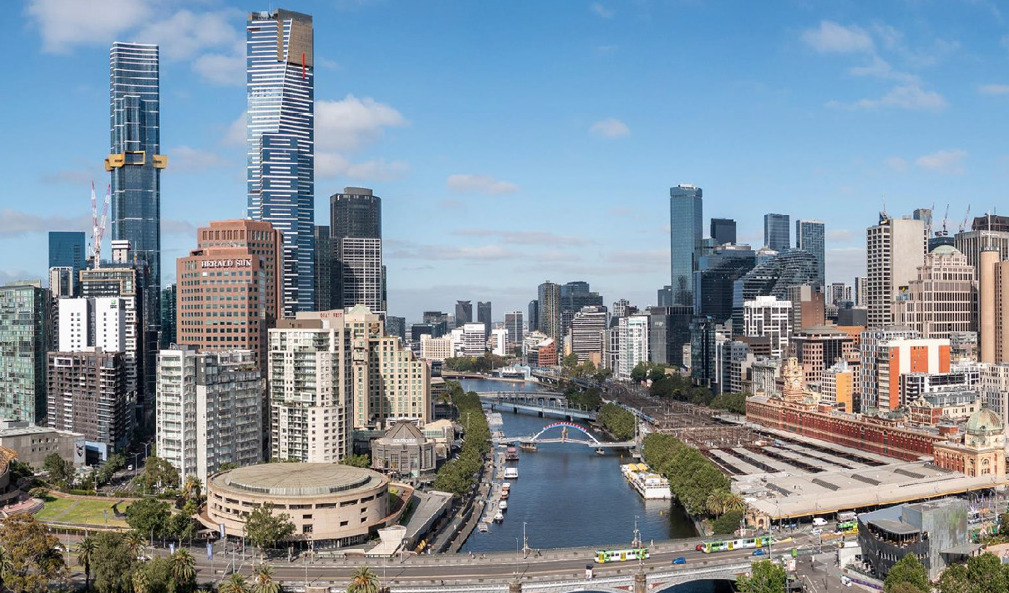- English
- 中文 (Chinese)
- Français (French)
- Deutsch (German)
- 日本語 (Japanese)
- Español (Spanish)
City of Melbourne Net Zero Imperative

The TAP was tasked with identifying ways for the City of Melbourne to incentivise retrofits and Zero Carbon Precinct engagement, as well as providing key recommendations to help the city achieve its stated objectives and decarbonisation ambitions.
The key objectives of the TAP assignment are outlined below.
- To identify block or precinct-scale uplift case studies, from Australia and internationally, and understand the recipe for success.
- To explore the challenges and opportunities facing typical stakeholders within the municipality of Melbourne, when assessing, planning, financing and implementing decarbonisation solutions within a precinct. This could include (but is not limited to): carbon asset stranding risk, access to resources (financial, technical,other), support and incentives available (Federal, State, local, other), planning controls, infrastructure availability, capacity, and supply and demand for zero-carbon space.
- To identify additional precinct activation and future proofing opportunities that can occur in parallel with precinct decarbonisation such as infrastructure upgrades, accessibility, economic development, artwork, biodiversity, and microclimate improvement.
- To develop a model for a Zero Carbon Precinct uplift that will enable a replicable pilot across Melbourne and Australia more broadly. The model development will include precinct uplift visioning, site selection criteria, governance, and a funding and stakeholder engagement framework.
- To identify measurable indicators and outcomes that the pilot should track to assess progress towards building decarbonisation, economic activation and social benefits.
Additional related resources:
ULI East China Net Zero Imperative
ULI Net Zero Imperative - Charlotte Roadmap
Climate Ready Chicago - Strategies for Accelerating Building Decarbonization
レポートの概要:The TAP was tasked with identifying ways for the City of Melbourne to incentivise retrofits and Zero Carbon Precinct engagement, as well as providing key recommendations to help the city achieve its stated objectives and decarbonisation ambitions.
The key objectives of the TAP assignment are outlined below.
- To identify block or precinct-scale uplift case studies, from Australia and internationally, and understand the recipe for success.
- To explore the challenges and opportunities facing typical stakeholders within the municipality of Melbourne, when assessing, planning, financing and implementing decarbonisation solutions within a precinct. This could include (but is not limited to): carbon asset stranding risk, access to resources (financial, technical,other), support and incentives available (Federal, State, local, other), planning controls, infrastructure availability, capacity, and supply and demand for zero-carbon space.
- To identify additional precinct activation and future proofing opportunities that can occur in parallel with precinct decarbonisation such as infrastructure upgrades, accessibility, economic development, artwork, biodiversity, and microclimate improvement.
- To develop a model for a Zero Carbon Precinct uplift that will enable a replicable pilot across Melbourne and Australia more broadly. The model development will include precinct uplift visioning, site selection criteria, governance, and a funding and stakeholder engagement framework.
- To identify measurable indicators and outcomes that the pilot should track to assess progress towards building decarbonisation, economic activation and social benefits.
Additional related resources:
ULI East China Net Zero Imperative
ULI Net Zero Imperative - Charlotte Roadmap
Climate Ready Chicago - Strategies for Accelerating Building Decarbonization


